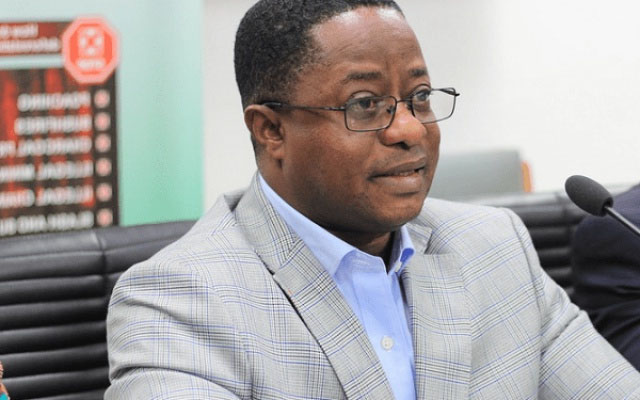John Peter Amewu
The Railways Development Minister-designate, John Peter Amewu, says projects in the railway sector should be looked at as social interventions rather than as mere investment projects.
“If the railway sector is taken as a social project for which government’s funding of the project is to reflect on the balance sheet of the government, then the after effect of the railway which drives the growth of the GDP will be worth-paying for the construction,” he argued.
Appearing before the Appointments Committee of Parliament on Wednesday, Mr. Amewu, who is the New Patriotic Party (NPP) Member of Parliament (MP) for Hohoe in the Volta Region, said “it is very difficult for a global funding base to take $2.4 billion to be run on a railway track of about 2,000 kilometres and expect a payback period between 30 and 50 years,” explaining “no prudent investment analysis will trigger such a decision to commit such fund.”
He added that “But if rather the government puts that money on its balance sheet as a debt and the impact of the construction generates economic growth in terms of GDP growth then that will be well paid.”
The nominee said he would pursue an investment into the infrastructure of the railway sector saying “some of the routes are still profitable and so if it is analysed and determined that investment decision will be taken based on profitability index and the investors are convinced beyond all reasonable doubts, then that should be done.”
“Of course we will identify that based on their analysis and give it out to them as an investment product,” he posited and continued that there was a school of thought the continuation of the railway line from Tema through Akosombo to Mpakadan, which will end up in the Burkina Faso, makes that rail line a “continental development project.”
Mr. Amewu said, “That line, for instance, has been classified by analysis as a profitable venture. Those ones can go into investment products where we can package it on build, operate and transfer for a longer period as a concession for the investors,”
The minister-designate also indicated that the right of way was “gradually graduating to a very serious problem in the Railway Ministry in terms of acquisition of lands for the tracks.”
“If this honourable House grants me the nod, going forward we will have to include the cost of acquisition of land in the project cost,” he said, adding that “The problem in the past was as a result of separating land acquisition from the construction. This is because most of these funds are global funds that are sourced specifically for the project.”
“To my understanding and thinking, if given the nod, payment of acquisition will become easier if you make it as the component of the construction; cost and right of way will quickly be acquired for construction and completion of the railway line project,” he emphasized.
By Ernest Kofi Adu


